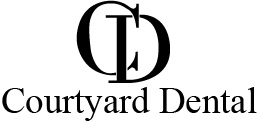Charcoal has made it big in the wellness and cosmetic industry. From face scrubs and masks to teeth whitening and poison antidotes, activated charcoal is a buzzword you cannot miss, especially if you are one to follow beauty and wellness enthusiasts on social media.
Social media influencers and beauty product manufacturers have been stressing on the benefits of charcoal. Sure, activated charcoal has many health benefits, including detoxification, promoting kidney function, reducing cholesterol levels, skin treatment, water filtration, hangover prevention, and more.
However, is the same charcoal an effective ingredient to whiten teeth like many claim it to be? Let’s find out.
Why Charcoal Toothpaste is the New Buzzword in Town
Activated charcoal is a porous black powder typically extracted from coal, bone char, sawdust, coconut shells, petroleum coke, olive pits, or peat. It acts as a magnet for impurities and toxins and is hence used for water filtration systems and the promotion of kidney function.
Charcoal is believed to absorb surface stains caused by coffee, tea, and red wine. This logic has detected that charcoal helps in whitening teeth as well. It is worthy of note here that even if charcoal happens to work on stains on the teeth, it can do so only on the surface level, i.e., on the tooth enamel. Charcoal does not have any properties that allow it to whiten teeth intrinsically.
Also, there is no study that proves that charcoal is in any way helpful in strengthening or whitening teeth.
Is Charcoal Safe for the Teeth?
Our teeth must be looked after with the utmost care to achieve shiny bright smiles. This includes using non-abrasive toothpaste that does not diminish the color or luster of your teeth. Charcoal has been found to be mildly abrasive and hence is not recommended for everyday use, even in the toothpaste form. If used excessively, charcoal may wear down the enamel and expose the dentin, a calcified tissue with a yellowish tinge of color. Thus having the reverse effect than one hoped for.
So, even if charcoal does have a whitening effect on teeth initially, it may lead teeth to look darker in the long run. Besides, it can also cause tooth sensitivity and increase vulnerability to tooth decay.
Moreover, the American Dental Association (ADA) published in its Journal an article with the following conclusion: “insufficient clinical and laboratory data to substantiate the safety and efficacy claims of charcoal and charcoal-based dentifrices.”
After reading all this, if you are determined to use charcoal on your teeth, make sure the powder you use (if you’re using activated charcoal directly) is very fine and that you use it only, say, once a month. To be on the safer side, check with your dentist to understand whether your teeth can take the effect of the abrasiveness of the material or follow his/her instructions.
Alternatives to Whiten and Strengthen Teeth
Several over-the-counter products, such as peroxide-based products and white strips, have been proven to work well for a long time now. So, you could consider using those or have your dentist make a home tray that can hold bleaching material. For deep-seated yellow teeth, you can always visit the dentist for a whitening treatment. Or for a simple everyday teeth whitening routine, use fluoride toothpaste. It whitens as well as strengthens your teeth.
Call us at (925) 855-1604 or schedule an online appointment with Dr. Wong for a consultation at our office in San Ramon, CA.
